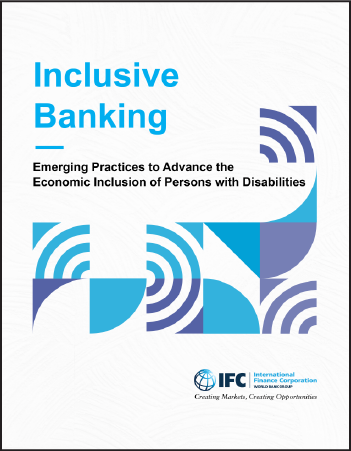
One billion people worldwide live with some form of disability (around 15 percent of the global population). Estimates suggest that persons with disabilities constitute an emerging market of almost USD two trillion in annual disposable income and a potential market of more than 3.4 billion people when family members and caregivers are included. However, as a group, persons with disabilities have a diverse range of experiences and impairments, yet they often face many complex obstacles in accessing employment, finance, and services, including banking services.
Persons with disabilities are critical to building stronger economies, and there is a business case for their inclusion. Discrimination on the grounds of disability—including failure to ensure equal access to employment and financial services—violates universal human rights, but also harms business performance and economic growth. Failure to address discrimination and exclusion may cost some economies as much as seven percent of GDP.
Given the pressing need for financial inclusion, the banking industry is well-positioned to lead the way on increasing access to employment opportunities and financial services and products for persons with disabilities. IFC is working with banks, companies, and investors to advance the economic inclusion of persons with disability as corporate leaders, employees, entrepreneurs, consumers, and stakeholders.
This note is one of the first by IFC in a series that highlight the private sector business case and emerging practices that foster economic inclusion for marginalized communities. It features first-hand information shared by 12 of IFC’s Treasury underwriter banks on how they are advancing economic inclusion for employees and customers with disabilities.
